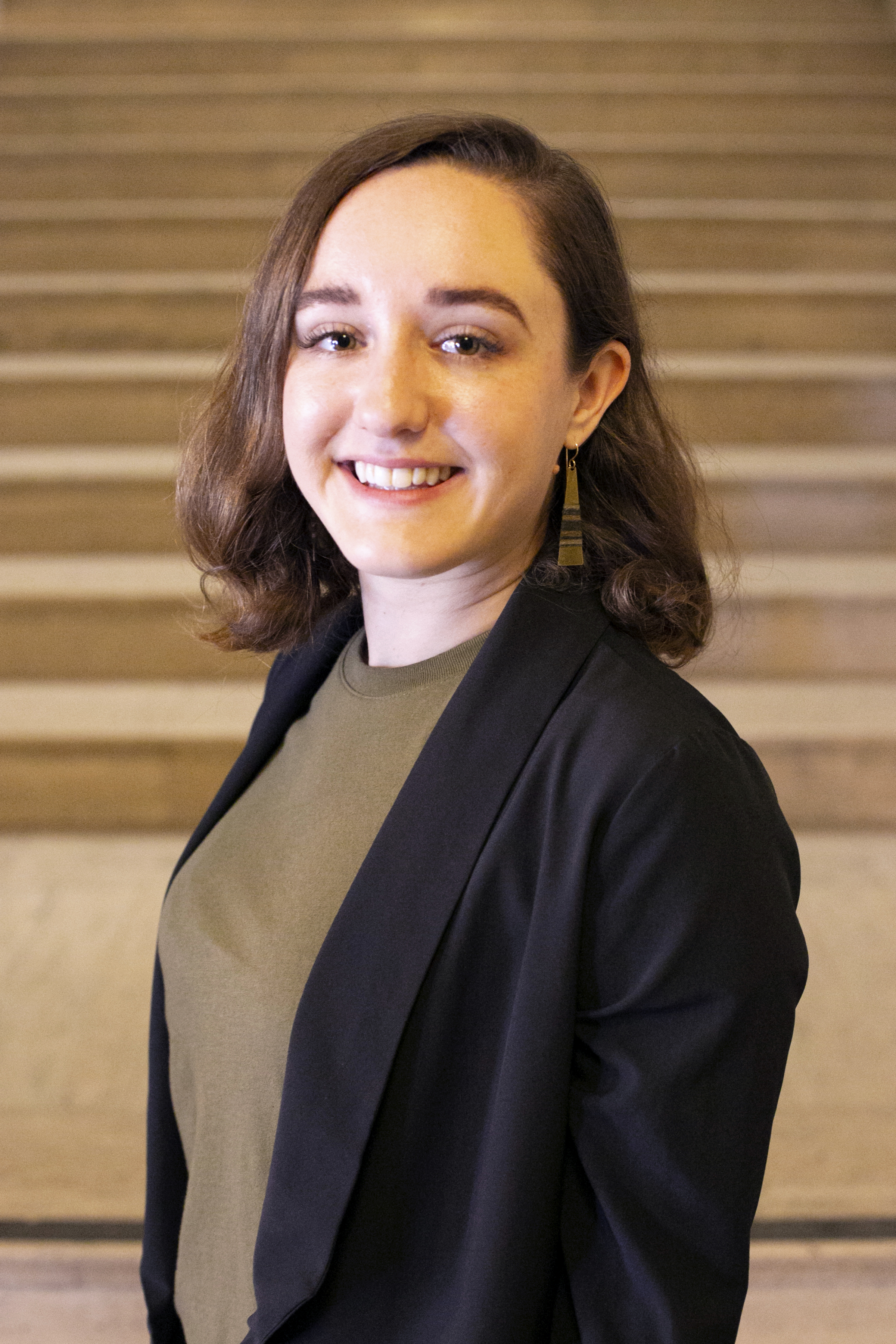Alumni Spotlight: Charley Willison
January 31, 2025 - Emily Johnson
The Department of Political Science (PLS) within Michigan State University has thousands of alumni working across Michigan, the United States, and in the world within the public, private, and non-profit sectors to promote change.
Alumna Charley Willison earned her Bachelor of Science in Interdisciplinary Studies in Social Science with a minor in Political Science from Michigan State University in 2010. She went on to earn her MPH/MA from Case Western Reserve University School of Medicine in 2013 and a PhD at the University of Michigan School of Public Health in 2019. In 2021, she began her career as an Assistant Professor at Cornell University within the Department of Public and Ecosystem Health.
 Dr. Willison is an award-winning author, with her book, Ungoverned and Out of Sight: Public Health and the Political Crisis of Homelessness in the United States (Oxford University Press, 2021), evaluating supportive housing policies. She received the Dennis Judd Best Book Award in 2022 from the American Political Science Association's Urban and Local Politics Section.
Dr. Willison is an award-winning author, with her book, Ungoverned and Out of Sight: Public Health and the Political Crisis of Homelessness in the United States (Oxford University Press, 2021), evaluating supportive housing policies. She received the Dennis Judd Best Book Award in 2022 from the American Political Science Association's Urban and Local Politics Section.
MSU PLS Professor Sarah Reckhow taught Willison in 2010 in an undergraduate Urban Politics course.
"I'm so proud to see all that Charley has accomplished and how much her work exemplifies engaged scholarship on social issues of critical importance," Dr. Reckhow said.
MSU PLS caught up with Dr. Willison and asked her to reflect back on her career so far and her time at MSU.
Q: What motivated you to pursue a career in political science?
A: I was always interested in the policy behind health. As an undergraduate, I wanted to learn more about the legal and political aspects of health outcomes, and at the time, health justice and bioethics, with a focus on healthcare. Political science gave me a framework to start thinking about these broader questions, like why do different countries have varying degrees of access to and quality of healthcare?
Q: What motivated you to pursue both a Master of Public Health and a Ph.D. in Public Health?
A: My road to public health was winding. During my time at MSU, I studied abroad in Malawi and got to work with policy organizations involved in evaluating access to healthcare and accountability for those investments. This experience solidified my interest in health policy, and the politics around health policy, but I didn't know to what end. After graduating from MSU, I interned at the American Medical Association's Bioethics Group. I had the opportunity to work on various aspects of health care policy ethical guidance. After working explicitly in medical policy, I realized I was more interested in population level health policy, and the social determinants of health. I wanted to work in state or federal policy to improve access to different types of health services at the population level, with an emphasis on marginalized groups. From there I looked to MPH programs that incorporated the normative frameworks of bioethics with public health. This led me to pursue a joint MPH, and MA in Bioethics at Case Western Reserve University. My MPH training focused on how to identify and evaluate best practices for population health and health equity. During this training, I was consistently puzzled by the policy choices that were often misaligned with public health goals, especially for marginalized groups. This work brought me back full circle to political science: what [political] factors influence public health policy outcomes? What explains the public health policy choices governments make? These key questions are a very small part of public health research and practice, despite their necessity to achieve public health goals, which drove my interest in pursuing a PhD in political science and health policy.
Q: What role did Michigan State University's Department of Political Science play in shaping your career in public health and political science?
A: My foundational interest in political science and training at MSU directly influenced my career in political science and public health. Public health has very lofty and often essential goals, that cannot be achieved without understanding political processes that influence policy outcomes. In my scholarship, I am especially interested in the influence of local politics and democracy on public health policy political decision-making. My interest in local politics stems from the structural fact that most public health policy in the U.S. is implemented (and in many aspects designed) at the local level. But this interest also arose very much from my studies in political science at MSU, including Dr. Sarah Reckhow's Urban Politics course that illustrated the important and complex role of local politics in shaping the built environment — an essential social determinant of health.
Q: Reflecting on your journey from Michigan State University to Cornell University, what advice would you give your younger self as you were beginning your studies?
A: I would tell myself to consider all opportunities presented to you. MSU has so many incredible programs, including study abroad and study away. I am very grateful for this practical experience and the opportunity to test out different career pathways and learn from different mentors.
Q: What are your fondest memories of your time at MSU?
A: Reading Jane Jacobs and discussing the role of community organizing in American local political development!

